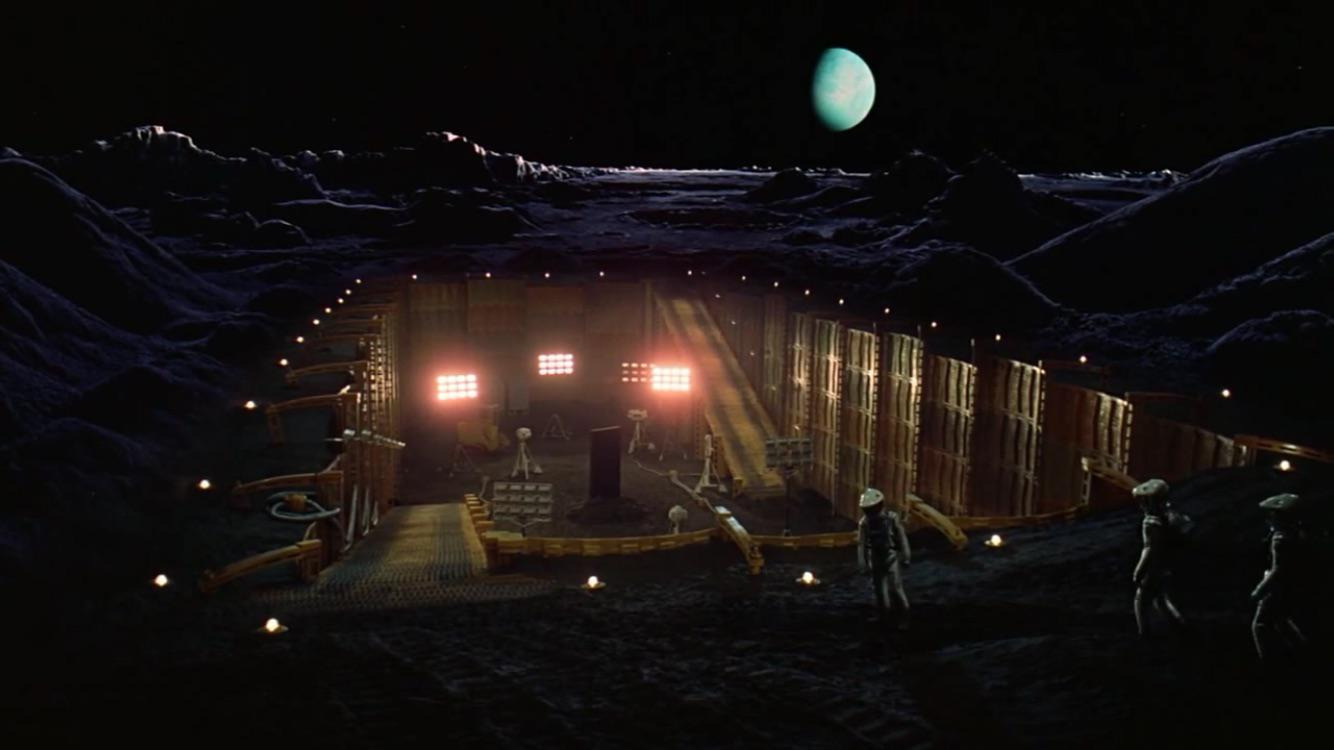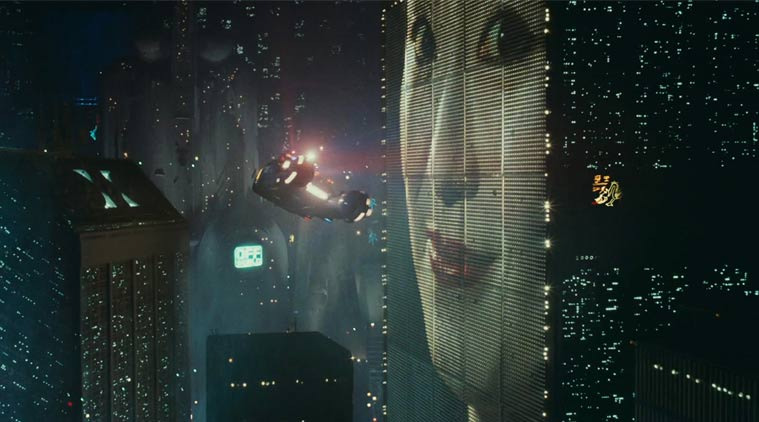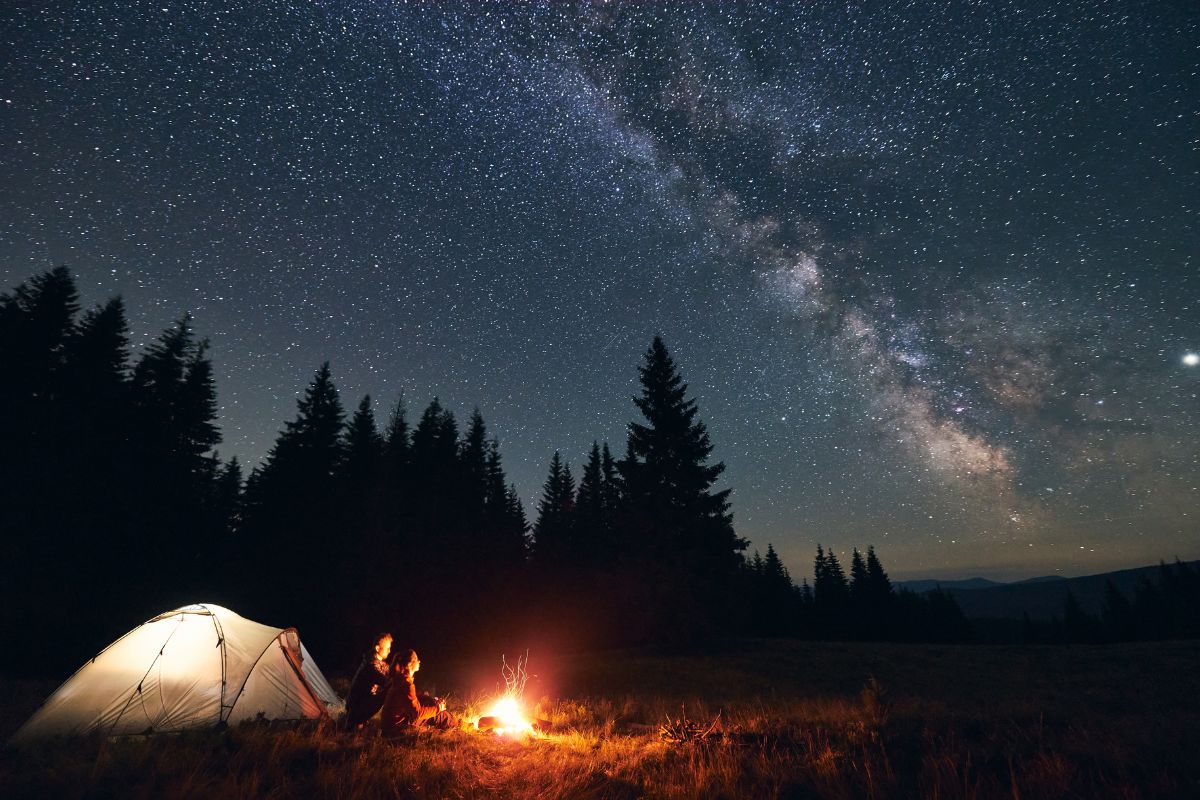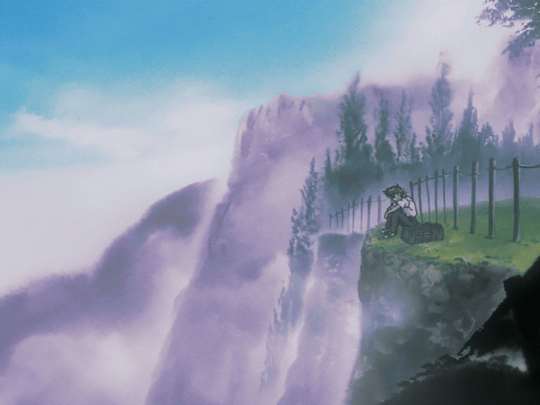9/6/23 Even as fiction subverts and supplements reality it contains the structure of reality and delivers philisophical information, and this does not need to be intentionally done because it is in the nature of fiction that it cannot supplement reality well unless it contains meaningful truths on some distorted level. More often than not, fiction does not seek to have philosophy, it only seeks to create emotional stakes and believability through structural similarity to reality -even when it introduces a fantasatical and fictional premise. The pursuit of emotional stakes and believability are enough to create philisophical meaning. Even when a world is fictional, human nature and emotion remains real within it because fiction is part of reality.
7/28/23 The shape of samsara shifts beneath the veil of our social constructs. Samsara is there beneath our economy as we try to quantify the universe around us
9/4/23 supply and demand can be culturally decoupled from their equivelants in suffering and desire, economic cycles from the individual cycles, but ultimately economics "existed" before it was "discovered" and the things it attempts to quantify within society were observed before, the GDP experiences "peaks" and "troughs", the empire goes through a period of "decedance" and "fall", the vedas describe the day and night cycle of civilization as divided into the "yugas". Ancient civilization had to rely on what has now become "mythological" by our standards -a sense of instinct rather than a science- simply because they did not have the ability to survey the market.
7/25/23 long term nuclear waste warnings, which have been talked about to death and most people wish to forget about, still leave their main existencial questions unanswered, our monuments only inspire fascination with and reverence for what is lost. our symbols stuggle to retain meaning. a preisthood or religious canon of some kind to pass down oral traditions and beliefs may keep our warnings alive for thousands of years even through changing language and societal collapses. We worry how our most important and simple messages are so zealous that there is no hope of them being taken seriously by the future, let alone our complex philosophies about human existence. How do we stop the advanced knowledge of our high society from becoming a supersitition, long after the society itself collapses into cycles of dark ages and rebirths and is thoroughly forgotten about?
And yet, we don't think to heed the same warning from our own past, that the vedic texts and the oral tradition of the upanishads tells us of the cycles of civlilizations destroyed and forgotten over massive time scales, of the myth that babylon was not built but rebuilt from the ruins of the greater civilization that came from a time before. We don't think to see that the oldest civilzations are all along the fertile floodplains, and that only those which flooded the least remain. The most fertile of all ancient land is also that which crumbled to the seas the most. just as we, looking down on their ignorance, build our civilizations the densest where the land is most ready to flood. we rely on knowledge of archeology from the layers of rock that are in a constant state of being absorbed back into the molten earth.
Even satilites will fall out of orbit from gravitational abornmalities after a matter of millenia. our creations left planted on the moon may survive longer, but the moon is fodder for all the things that fall from deep space. the surface is battered with billions of craters, so finely destroyed that few rocks are left not turned to dust, as will happen to the human marks left there. Perhaps a particularly monolithic and primitive structure -something totally out of place among the delicate, intricate, and light pure-utility of space travel- could outlast us. Maybe if we cared enough, but as with us it seems there is nothing left to last from a civilization before. As of yet nothing has been found, buried deep in the moon.
Just as we wonder about the atmosphere of venus mysteriously turning from possibly habitable to being nine hundred degrees with acid rain after a sudden period of greenhouse emissions millions of years ago, we wonder our place in the universe and what course industrialization on earth takes.



We can't ever claim to know, yet this world is of impossible scales and we can only understand it by seeing impossible action hidden within it. Cultures long past mean to tell us that our world is more than they could believe or understand. We have to look at motionless mountains and believe that invisibly they move with tectonic forces, because we know only impossbile forces can explain their impossible origins.
9/21 something no writer is going to analyze and put work into expressing is that language, or particularly written language, is inherantly psychologically harmful, even though it's very useful. No wonder all writers go insane, but they cant give up what they're good at. There's enough french pilosophers who've written about induced schizophrenia in culture and languages, enough to make you ask, mainly "what the hell is happening in france" but also enough to prove their point, the medium is the message, and the medium is people who speak a specific language, and are insane because of it.
1/5/24 i'm convinced every author shares an obscure mental illness which involves written language, since the premise of using written language enough to complete a book is inherantly insane
and we are psychologically unprepared for writing to be so common, but we as a society aren't aware of that yet because most people throught history have been illiterate. Writing is an arcane practice misused by a modern and semiotic society with an unchallengeable information-based economy, consumers need to read the ads and producers need to read the charts, but beyond the bare funcitonal level people in modern society are illiterate just like with most of history. 1/5/24 We cannot see into the words anymore, and we are overwhelmed with meaningless writing because there is no effort required now to churn out bits of writing or to "consume" socialization as an endless stream of written words, none of which particularly need to be meaningful, only stimulating. We simply cant afford to care because too much written language exists without meaning. Misuse of language to the point of complete meaninglessness is probably a timeless way of being funny, but in written form, devoid of personal social context, it begins to deconstruct the concept of meaning entirely. Even well crafted and decisive writing begins to infirm a sort of schizophrenia (which is necessarly a product of our consciousness being used against it's evolutionary nature to operate within a semiotic society), because it is simply not "real", it can only at best convey true ideas for us which we can understand because of our experience with the real world outside of it. You might imagine that the very purpouse of language (and semiotics) is to induce something which is essentially soft-form schizophrenia, this is it's usefulness, it's arcane nature, and why it is dangerous to misuse or overuse.
12/21/23
you shouldn't study philosophy unless you have an outlet for it
or maybe, dont study philosophy until you have an outlet for it
#it will just acumulate in your brain and go bad unless you have a recipe which calls for it
and you dont need to study philosophy at all if your instincts and taste are good enough, but it's only thanks to being cultured that it comes intuitively as part of individual judegment, and a lot of people are not cultured. Generally speaking whenever possible in life; instinct is superior to intellect, it is completely burdenless, instant and clear, you may have to train your instincts manually and thats where the studying comes in. But the outlet of philosophy, the culture you create with it, the art you make, or expressions of personal relationships or expressions of organized political action, or archetecture, and any other self expressions of philosophy, they add together to create a world where the philosophy behind the expressions becomes intuitive and the literature no longer needs to be studied directly by all people anymore because it's ideas becomes intuitive to a culture.
I see the goal of culture as being to enshrine philosophical values in order to aleviate the burden of actually having to study or think about philosophy. We have to study philosophy because either we are creating culture ourselves, because our culture needs to be questioned and replaced, or because we are at risk of losing high culture which was functional in helping evaluate and aleviate the world for us. When culture becomes dysfuntional we are left to ask every question alone and it is more than we can answer, that is why we need to seek out the creation of new mythos.
10/21/23 I’m used to this expectation of an abstract idea of literature as a romanticist and mythological pillar of society that’s so cultured and then I pick up a book and it reads about the same as a social media post by comparison except it’s just written out long enough to fill a book. And I guess learning continental philosophy gave me too high of expectations that if I wanted to read a different kind of book it would also read like it was some special artisanal craft rather than read like long-form journalism. I imagine a lot of the problem is that I’m like reading in English, but still.
I want to feel like I’m in a museum or cathedral or forest but I feel like I’m going to see a TED talk at best. #I expect at least to feel like I’m sitting at a sidewalk cafe pondering a book with my coffee and shit #Not some overpriced Los Angeles style coffee shop I mean like real euro cafe. The thoughtful vibe #I guess this is why ‘dark academia ‘ aesthetic exists. It’s a shallow cringe description but it’s sort of like what I’m thinking of #tiktokkers have no right to feel entitled to good literature they will not read
1/20/24 friend's post; it is "axiomatic from the Islamic perspective that the Quran cannot be translated, because the form of allah's revelation, that is the Arabic itself, is not merely incidental to its meaning, but essential to it."
(my response) Jews have a similar idea too, but I believe the west generally underestimates how true this is in a secular sense
learning German philosophy (in English) you will repeatedly get the impression that it’s not merely specifics which make more sense in German but that the ideas themselves have to be understood in german
Nietzsche said, I think in the birth of tragedy, something about how people of the modern Europe would “shudder” if they could “sufficiently understand violence ‘in Greek’”
I increasingly get the impression that English has been so misused that now, no book at all can be truly be translated into English
(friend's reply) yes german is a great deal more verbose than english. and as a trilingual translator i relate to the last thing
(my seperate post afterwards) the more I consider the unreliablility of living languages and the reality of cultural pollution and effective illiteracy as misused languages lose meaning, the more I wish there was a secret language which was essentially to be used for things worth carving in stone, and which only experts like philosophers learned to speak, like an ancient language which could remain unaffected by modern connotation and obfuscation, and I realize in hindsight that is probably the purpose of why latin used to be taught in every american college. I feel though that latin as an intellectual subject has become far too much of a class indicator on it's own, rather than being utilized for it's intended purpouse, and instead it became oversued by pretentious graduates just to make themselves seem more legitimate purely to be competitive about professionalism, rather than because of interest in subjects at hand. like people say; it is far too "stuffy".
Now i've had even more time for reflection, it seems that use of latin as a seperate practice from english actually mirrors the history of language overall; as an important esoteric practice which lost it's usefulness after it's users became became too preoccupied with viewing it as a class indicator. As a class indicator it was subject to losing its value according to temporary political flux, whereas a language does not lose value over such conditions when instead viewed not as a simple class indicator but as the very medium for an entire constructed worldview.
Plus I feel that parhaps legacy leads to normalcy, the latin alphabet is the basis of all european language and so it hardly becomes an insulated medium to preserve important information, we instead view latin as a model aesthetic to replicate in everyday life, as the legacy of german and italian scribes the ancient roman style used for preserving information has become our standardized "times new roman" for creating any soulless corporate work no matter how little importance it holds, no matter how obligatory or uninterested an article is, the normality in the legacy of language ensures that said text will become cannonized within the tradition. Not because someone cares but because appending whatever random thing you write to a tradition thousands of years old is the default setting of most text programs. where language is the fiat currency of exchanging soul, art is the solid asset which ensures it. our words are based in their value on depictions and expression of the world. Where art fails to uphold the world, words fail to mean anything.
7/19/23 people see the south or appalachia as sort of backwards, maybe in technology and economic sense it's behind by a century, but the large cities of america are behind by a millenium or more. look at new york, look at los angeles, look at miami, and nobody wants to admit it but behind the vast wealth of technology these are extremely primitive places just brimming with primitive practices. physionomy, social caste system, astrology. you name it, los angeles is culturally a thousand years behind, twisted and archaic and medieval.

7/18/23 if you ever asked the universe for a sign it's time to stop asking. the signs are here
they are the biggest signs humanity has ever seen
8/25 the signs created by people *are* the signs created by the universe
6/30/23 insane how stuff like boston dynamics and chatbot ai and object recognition are already boring novelties. like the tech for real sci-fi level robots exists and it's just kind of boring. like nobody really even wants it. in 2015 you just would not believe this at all. a person from 2015 wouldn't even believe the invention of airpods. (1/5/24 addition) we lack the outside perspective we once had within living memory; that we knew a world such as our current one is mythological, containing unbelievable forces which too many can only now view in mundane and commercial ways, we are not anymore allowed to think we are on the cutting edge or exceeding our reality; these technologies exist within the bounds of societal consciousness; after the initial feeling of trancedence of the old world though technological advancement is channelled into creating the first wave of consumers it eventually wears off, and we are then permitted to instead think of the new world and it's components as "normal", so as not to be disturbed by change.
6/30/23 once the development of / hype around current AI projects begins to level out, people are going to stop focusing on the AI itself and start remembering all the ways people speculated it would be used like it was in sci-fi. It's like we're there, the future. with existing technology people can just make human robots, whether or not we should. It's really just a matter of waiting first to see where AI goes on it's own before anyone wants to branch off into developing something else by using it.
(addition 7/5/23 )nobody wants to specialize it with other technology until it's complete, but once it is, things are gonna get crazy
and we cant forget as it seems to become normal that it will be a kind of existence we knew from an outside perspective to be mythological before it became reality, and in how it seemed -for those who have underestimated mythos- to be a new world more strange and arcane than reality was "supposed" to be, mor than reality is "allowed" to be
6/28/23
i think society has lost the way which people had complex and personal understandings of the world around them. Nowadays people have to have discrete and sovereign ideologies and religious beliefs. You have to subscribe to ideas, you can’t really have a sense of awe in a collection of explanation for the human experience you know is fundamentally unknowable.
For a good amount of time, trying to explain things ultimately came down to a wordless sort of awe. but increasingly, these things are not allowed to just be feelings, not feelings just orbited in long conversations with close friends, words must take their place, and must take the central place. You have fancy technical and academic terms, buzzwords, other coined terms, aesthetics, etc. you have to have a quick way to distinguish your way of seeing the world, and you can align yourself with other people. there’s no room for your understanding to stray too far from the local terminology.
even in the esoteric now, there is always a local terminology and localized preexisting “understandings” with which you build yourself, not to build yourself *off* of, or to *inspire* your self-realization. When you consult and communicate with established ideas and texts, you are not anymore “learning” or taking away something for your personal understanding, but rather being pulled “into the dialogue” of something
#I think becoming a ‘citizen’ of a ‘sovereign philosophy’ is opposed to being a ‘sovereign individual’#In other words… lack of individual philosophical sovereignty=Lack of personality#Ironically being normal used to mean you were special. - in the sense that it at least meant you were not so unoriginal#To have broad clusters of standardized ideas like you can on the internet would have been considered not normal for people a short time ago



the philsophies are sovereign, which is why the individuals are not, they hold philosophies which are premade and self-contained with their premade borders
5/19/23 when we search for higher meaning or greater complexity we really only want abstraction of the lower forms of meaning.
we create art and philosophy for greater meaning than what life simply is, but all that’s depicted in art and philosophy is life, just abstracted or captured somehow. The original, that is lower, forms of meaning.
we choose, instead of indulging in lower meaning on our own, (ranging from seeking stability to seeking hedonism) to fight for a better world, which is to say…. an abstracted future where stability and hedonism can be afforded. The goal of higher meaning is only to end up serving lower meaning somehow. Meanwhile in the higher meanings centered on valuing asceticism, we choose to find or create nothing. All creations and other cultural artifacts of higher meanings would lead to, in the future, the opposite of what asceticism wants to achieve.
"rather than use your life to be a hedoinist, do something meaningful, like fight for your children's right to be hedonists, or if you dont find meaning in somthing that shallow, then fight just for their right to fight for their own children's right to fight for their children and for their children into infinity for either nothing or for some eventual shallow form of meaning"
in the ways which don’t matter as much, we only create our complexity of culture by abstracting the same simple reality. Our sports and games and stories, all entertainment that could be seen as a more complex invention is just the abstraction of the lower world, we play sport and games and consume stories as an abstraction of life on its own.
if you removed all of these abstractions from life, what would be left as purely it’s own?
If instead of appreciating any art as representation of life you only tried to appreciate the reality it abstracts, if instead of playing sports you only experienced the natural athletic and competitive realities it abstracts, if instead of watching a movie about something, watching a show, reading a book, you lived with only the reality they depict itself.
The internet is obviously one of the greatest of all abstractions. It serves purely to abstract, it’s entire purpose is to distribute a feed of real life, I’m sure I’ve complained enough about the internet that I don’t need to elaborate any points on it here.
so when we fill our time with a great variety of different things,, when we discover these many different inventions of culture, we are only really consuming the same few expressions of reality. At its core, almost everything in life can start to feel the same. That’s because, in nature, all is the same, before culture develops all things are the same. Over time we create an image of a world with this vast variety and complexity, to such an extent where it becomes reality. This is very similar to what the philosopher Thales meant when he said that "all is water".
Additionally, much of these abstractions are of a search for conflict. When you have nothing else you need to do for a moment in life ( includes our need to rest) why sit in peace? Why do nothing when you could create an abstraction of conflict with another person by playing chess? Or on your own by watching a movie about fictional conflict. Why not watch the news for an abstraction of the real conflict we miss in our life?
Even when not creating conflict, we are finding enjoyment in the drawing out and abstraction of what would have been pure necessity in natural world, or is more hedonistically-driven. Rather than consuming food without any greater thought, we could enjoy cooking and baking and shopping for ingredients and equipment. We take the reality from basic nature of needing to eat, and draw it out culturally, we draw it out into its abstractions within complex society. We make it into a wide variety of different things, eventually even going as far as to sometimes not eat at any part of the process but simply watch cooking videos or read cooking magazines. All these things, which we can see as different potential forms of entertainment, or as different places to strive for things like wholesomeness or higher enjoyment (i.e. “cultured” or “higher culture”) within the great variety of life, are all the same. The same is true for absolutely everything, everything in the world is exactly the same.
Even when we make friends, it’s not them physically or spiritually or in any other way that makes us connected, it’s not what we can take interest in. We connect over the outside world. When we empathize with people we only extend ourselves, we experience more of the world through them and think differently through them. But at the core there is nothing that isn’t a reflection of the outside world or a reflection of ourselves. And the same is true as anyone else looks through you. Unless we continually abstract and complicate ourselves we are simply transparent within the world around us. But in this self differentiation we create conflict. As we become individuals, as we create ourselves, we are -by the definition of the word individual- creating barriers and boundaries where the world does not pass through us. Every border implies conflict. This general idea is starting to approach a lot of the things already said by Schopenhauer and Nietzsche and Jung and Freud and I’m sure many many more about individuals. I cant include everything they say in my entry. The point is that it all fits into the other ideas I’ve outlined.
Speaking of them, I want to go back to what i said earlier. Schopenhauer’s “world as will and representation" already says pretty well how the whole world goes back to the same thing, and is just complications and divisions of the same thing. That existence is made of the will (the will to existence) and within consciousness the world is made as representation, how we can perceive all of it. If you read into it more it does fit very well with how everything in life is the same. Nietzsche also talks about the will and how it appears in everything, within culture and art. Nietzsche especially talks about how things within culture are just abstractions of the will and expresses the will abstractly; like sports such as charriot races expressing fighting for resources, collective identity, war and imperialism, or tribes or races, replaced in an abstract form within a civilized society. Both him and schopenhauer say that music is the highest form of art because it doesn’t try to represent anything about the world in the way any other art like painting or literature or sculpture does (Music does not need to abstract anything, it can simply be music). Instead, both philosophers say that music is the only art which instead is a direct expression of the will itself.(check out "The Birth of Tragedy Out of the Spirit of Music" in particular, nietzsche's first work, so a lot of his later ideas are missing, but interesting still)

Concerning what lays outside of the abstractions, both write on the concept of the sublime, which is inherently hard to describe but is essentially just a pure experience of the world. the sublime is fulfilling but is not part of anything else, it is not an abstraction of culture, it is something which can exist outside of conflict or basic need. its generally described in the appreciation of nature, and generally described in the sense of the literal physical landscape itself, but it applies to far more.
I know the continental psychoanalysts talk more about things similar to all these ideas too, but I don’t know as much about them so I can’t say yet.
an abstraction of truth; my favorite example